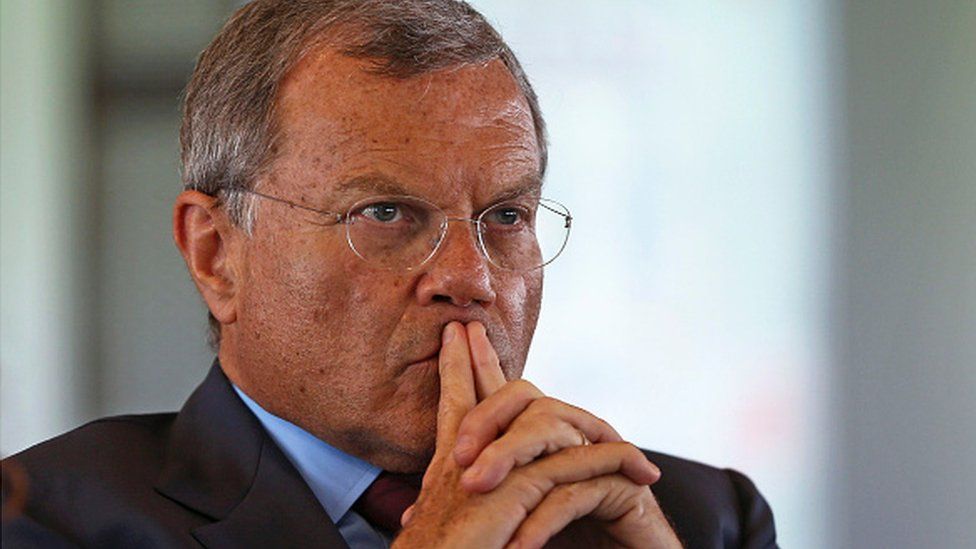WPP battles 'low growth' advertising market
- Published

Advertising giant WPP has cut its sales and profit margin forecasts for the second time in two months.
WPP said like-for-like net sales growth and operating margins would both now be flat this year, instead of increasing by up to 1% and 0.3% respectively as the firm predicted in August.
The forecast, which it said it would be reviewing shortly, came in its nine-month figures.
It said of all its regions, the UK performed the best.
Sir Martin Sorrell, WPP's chief executive, told the BBC: "Brexit in a way has actually stimulated our business. Clients, instead of investing in fixed capital are investing in variable costs [such as advertising] in an effort to stimulate growth."
He added the world was in a "new normal of low growth, low inflation and limited pricing power", which had exacerbated an emphasis on cost reduction.
The downgraded forecast sent WPP shares down 1%. They are currently priced around a third below their level at the start of the year.
The firm's two profit warnings this year have prompted significant falls.
He told the BBC the low growth environment was leading clients to keep a tight control on spending: "Consultants are going to clients and suggesting they're spending too much money across the board."
Ultra-low interest rates were "driving pools of money into activist investing" which typically resulted in a squeeze on companies' budgets, he said.
He also claimed that Facebook and Google, growing platforms for advertisers, were not a threat to his business, and were, in fact, WPP's biggest destination for investment.
Squeeze
Sir Martin, who has been chief executive at WPP for more than 30 years, said three major forthcoming events could help offset the current weak spending environment.
"Any further marketing investment reduction may well be countered by the mini-quadrennial events of 2018 - the Winter Olympics in South Korea; the FIFA World Cup in Russia; and the mid-term Congressional elections in the United States."
George Salmon, analyst at stockbrokers Hargreaves Lansdown, said it was "a difficult year" for WPP.
"The group says the main cause of the slowdown is a change in spending patterns at big companies.
"Unilever's focus on margin and Reckitt Benckiser's zero-based budgeting are two high-profile consumer goods examples, and we can see how this has put the squeeze on the world's biggest advertising agency," he added.
- Published6 September 2017
- Published23 August 2017
- Published7 June 2017